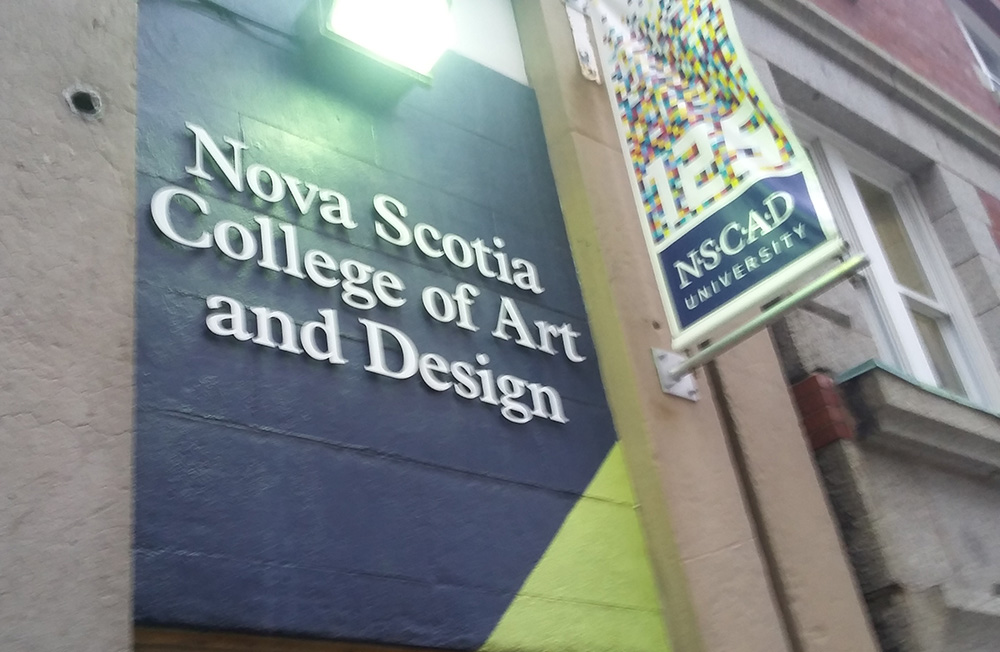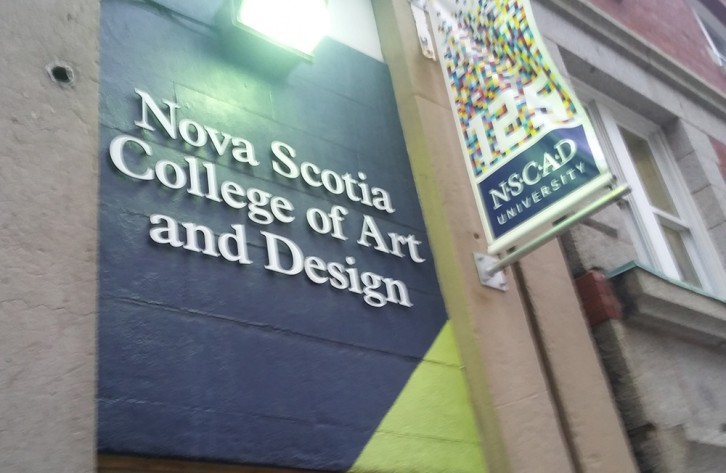University
NSCAD University board of governors vote in favour of tuition reset
University explains who is affected, why it’s necessary. Students are disappointed, but not surprised

caption
NSCAD's Board of Governors voted in favour of a tuition reset on Tuesday. Many students feel this was unfair.
caption
NSCAD’s Board of Governors voted in favour of a tuition reset on Tuesday. Many students feel this was unfair.On Tuesday, the NSCAD Board of Governors voted in favour of a tuition reset for the university.
Students taking five or more classes per semester will see an increase in tuition over the next three years. The increase will range between 7.7 per cent to 9.1 per cent each year until the 2018-2019 school year. It will not affect full-time students taking three or four classes or part-time students.
That means a student taking 15 credits over two semesters, who now pays $6,360, would pay $8,097 by 2018.
The chair of the NSCAD Board of Governors Jeff Somerville said the change will keep NSCAD a strong and independent university while impacting the fewest number of students in an open letter from the university.
Students at the university were worried the increase would make NSCAD one of the most expensive institutions in Canada. In the letter, Somerville said NSCAD’s tuition is currently the lowest in Nova Scotia and after the adjustments, it will neither be the highest, nor the lowest.
“It’s an unfortunate reality that we have to live with,” said Somerville. “Art and design education is an expensive program to deliver because of low student-to-faculty ratios and the requirement of dedicated space for students and their practice.”
“We tried to navigate those choppy waters as best we could and, in an unpalatable situation, come up with the best plan that we could,” he said.
Somerville said he understands the student’s frustrations, but the tuition reset is necessary for the school.
“I fully empathize with the students,” he said. “University education is an expensive proposition for students. At the same time, our critical mandate as a board is to ensure that we have a sustainable, independent university of art and design in Nova Scotia.”
According to Somerville, the tuition reset is intended to correct several anomalies at NSCAD. These include a flat-rate of tuition – where students taking 12 credits were paying the same amount as students taking 15 or 18 credits – and a situation where the graduate program costed as much as the undergraduate program.
The letter says the Board of Governors will focus more of its fundraising on bursaries and scholarships to help students affected by the increase.
Students feel disrespected
On Dec. 3, NSCAD students staged a sit-in outside President Dianne Taylor-Gearing’s office to protest the proposed increase. Taylor-Gearing met with students at the end of the day to discuss the issue. Students asked her to hold the vote in a physical space instead of teleconference and to allow students to attend.
The Tuesday vote was held over email, which is allowed by NSCAD bylaws.
Somerville said closed meetings with published minutes afterwards was the best method for the university’s board.
“[This] way, we can reduce the number of in-camera sessions that we have to have,” he said.
Somerville said the motion to raise tuition was tabled at a Nov. 26 meeting and students were allowed to attend, listen to the presentation on the subject and ask questions. Students were asked to leave when it came to the point of debate on the topic, but refused.
“We did suspend the meeting at that time,” said Somerville. “Under our bylaws, we determined that we would continue the meeting with an email vote.”
Students are saying they wanted to be included in the discussion and are disappointed it went on without them.
“I think they did it because they knew it was wrong,” said third-year film student TJ Bennett. “I don’t think NSCAD’s going to survive this.”
Bennett said he thinks the school is unaware of what the students are actually doing and not representing them accurately.
“I felt betrayed,” he said. “I’ve been at every rally for this school, I supported them fully, I feel like I fought for them. I feel like they’re turning against the people who support them the most.”
Bennett said he was always going to support NSCAD by donating money, even after graduating, but with the increased tuition, he is now leaving the school and taking a year off to apply to other schools.
“It was something I was going to do because I loved my school, but I don’t any more.”
The feeling of disappointment in the board is shared throughout the student body.
“I feel extremely frustrated and disrespected,” said Grace Stratton, a councillor for the Student Union of NSCAD. “I think that’s the general vibe around the school.”
Stratton said she hopes there will be more action taken in response to the increase.
“We need to meet again as a student body and plan what’s next,” she said. “This isn’t necessarily surprising to me. As of right now, we don’t have too much of a plan, but we’re going to make one.”
